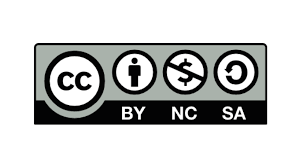STATISTIC

Legal Advice Journal of Law (JLA) is a peer-reviewed journal. This journal follows guidelines from Committee on Publication Ethics (COPE) facing all aspects of publication ethics and, in particular, how to handle cases of research and publication misconduct. This statement clarifies ethical behaviour of all parties involved in the act of publishing an article in this journal, including the author, the Editor-in-Chief, the Editorial Board, the peer-reviewer and the publisher (Faculty of Law, Muhammadiyah University Kendari).
Legal Advice Journal of Law (JLA) is dedicated to following best practices on ethical matters, errors and retractions. The prevention of publication malpractice is one of the important responsibilities of the editorial board. Any kind of unethical behavior is not acceptable, and the journals do not tolerate plagiarism in any form.
Legal Advice Journal of Law (JLA) adapts COPE to meet high quality standard of ethics for publisher, editors, authors, and reviewers. As an essential issue, publication ethics needs to be explained clearly to improve the quality of the research worldwide. In this part, we explain the standard for editors, authors, and reviewers. Publisher don’t have right to interfere with the integrity of the contents and only support to publish in timely manner.
For Editors
For Reviewers
For Authors
Disclaimer
The Editors of Legal Advice Journal of Law (JLA) make every effort to ensure the accuracy of all the information (the “Content”) contained in its publications. However, the Editors of Legal Advice Journal of Law (JLA) make no representations or warranties whatsoever as to the accuracy, completeness or suitability for any purpose of the Content and disclaim all such representations and warranties whether express or implied to the maximum extent permitted by law. Any views expressed in this publication are the views of the authors and are not necessarily the views of the Editors of Legal Advice Journal of Law (JLA).
QUICK MENU
DOWNLOAD & SUBMISSION
STATISTIC
INFORMATION
Journal : Legal Advice Journal of Law
Journal Abbreviation : JLA
Publisher : Fakultas Hukum Universitas Muhammadiyah Kendari
Address : Jl. K.H. Muhamammad Dahlan No. 10, Kendari
CP : 087844104386/085333368423
Email : magister.hukum@umkendari.ac.id

Legal Advice is licensed under a https://creativecommons.org/licenses/by-nc-sa/4.0/
Copyright© Legal Advice: : Journal Of Law and Consulting